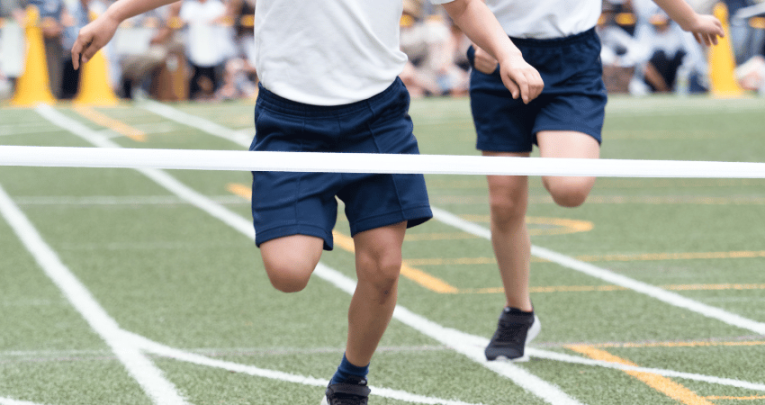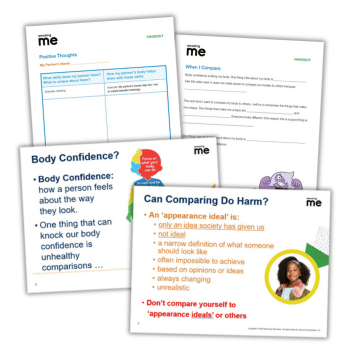Sports day – How to use it to fuel pupils’ personal growth

Use sports day as an opportunity to demonstrate how perseverance
and resilience can fuel personal growth and success for pupils…

- by Dr John Allan
- Head of impact & breakthrough learning at PGL

Sports day is one of the few dates in the educational calendar that focuses exclusively on skills learnt outside of the classroom.
Learning new skills is fundamental to healthy, human development, and can come in many forms, including physical, emotional, social and mental.
Although we all recognise the power of acquiring knowledge, we also know that cultivating a child’s emotional and mental attributes, such as grit and resilience, is just as important to their life outcomes as their retention of academic information.
Grit focuses on passion and perseverance towards goals, whilst resilience emphasises the ability to adapt and bounce back from setbacks.
To help children to adapt to the challenges of today and to face up to the demands of tomorrow, nurturing these development areas during childhood is essential, as this is where brain growth is most prolific.
We also know that many children respond well to lessons learnt in novel environments, including the morning or afternoon of teamwork and friendly competition on the school playing field.
To make the most of the opportunity, we can think about how we use sports day to foster the toolkit of skills that underpins the essential attributes of grit and resilience, including self-awareness, creativity, trust, and empathy.
Dealing with disappointment
As well as delivering healthy physical activity, sports such as running, jumping or team relays emphasise discipline, collective responsibility and goal setting, all of which are crucial components of grit.
Dealing with disappointment when losing can also be turned into learning experiences, whereby failure is perceived as a stepping stone to improvement.
Resilience is not about instant success, but a continuous journey of personal growth. Taking part in sport also empowers children to take control of their own learning.
This should involve educators and parents being responsible without being over-protective. If youngsters are never allowed to wobble, trip, stumble or fall, they miss out on the experience to know what it’s like to get back up again.
Activities that offer some negative emotion, such as feeling nervous or unstable in the moment, counterbalanced by positive emotions such as joy, pride and attentiveness, underpin a ‘steeling effect’. This helps to enable young people to handle more significant risks in the future.
Five practical ways to use sports day to fuel personal growth
Model effort
Children like to copy people, especially if they are meaningful to them. Demonstrate your own commitment – perhaps by running with them in warm-ups or showing support across all events.
Recognise effort over outcome in your comments and feedback. Pupils will learn to focus, and gain self-belief and drive from their observations of others and from feedback on their efforts.
Provide comments during activities, rather than waiting until the end, to give children the momentum to take it on board for their next challenge.
Teach rebound skills
Frame setbacks as lessons to learn and not failures to endure. This shows that achievement comes from stretching oneself by applying continued effort, and allows young people to self-correct and adjust their responses.
As a result, pupils will attribute their learning to themselves, avoid the blame game and take pride in their achievements.
Use language that highlights learning from mistakes, for example, “That didn’t go to plan, but what can we try next time?” to promote the idea that improvement comes from effort, not just talent.
Give control
When children realise that they have control over their decisions and actions, they are more likely to respond positively to challenges.
Giving your pupils the autonomy to participate at any level and explore their own abilities also helps them engage more confidently with their environment and develop a clearer sense of self in relation to others.
Let pupils make decisions about the events they enter, how they prepare, and how they respond to outcomes. This can be reinforced through reflection and asking students to consider: “What did you learn from that race?” or “What would you do differently next time?”
Structure teams
Sports day activities provide an opportunity for pupils to learn to work well with others and effectively contribute to a group. This sense of support and acceptance plays an integral role in building healthy relationships with adults and their peers.
Effective teamwork requires that group members learn to balance the needs of the group with their own. Resilience literature stresses the importance of developing peer relationships for learning about sharing, taking turns, patience, empathy, and the confidence to ask for help.
Providing opportunities for pupils to share their positive experiences of resilience through sport can also help them understand how their actions can inspire and build resilience in others.
Try intentionally grouping pupils across ability levels and encouraging peer support. As well as celebrating winners, praise teammates who showed encouragement, fairness and empathy.
Create natural experiences
The authenticity of the sports day experience offers immediate feedback and realistic consequences for success and failure.
For example, dedicated practice can bring rewards which are earned and celebrated with peers; failing to prepare can lead to making mistakes or letting teammates down.
To connect these experiences to everyday life, we must teach sport with ‘transfer in mind’. Neuroscience tells us that our brain (and therefore our behaviour) becomes resilient by responding to practical experiences which are personally meaningful and relevant.
By emphasising how these lessons apply beyond sport – such as handling nerves before a test or bouncing back from disappointment in class – pupils can connect these experiences to their everyday life.
In conclusion
Sports day offers much more than just a dose of physical activity; it provides a natural opportunity to nurture grit outside the classroom.
The key lies in using the moments before, during and after each event to draw out learning – encouraging pupils to reflect, recognise their development, and celebrate perseverance and teamwork.
With thoughtful guidance, pupils can begin to see challenges not as setbacks, but as valuable steps toward growth.
By helping pupils reframe these moments – whether it’s recovering from a fall or offering encouragement to a teammate – these experiences become powerful lessons in resilience. Over time, such lessons shape essential life skills that pupils carry with them far beyond the sports field.
Dr John Allan is head of impact & breakthrough learning at PGL.










